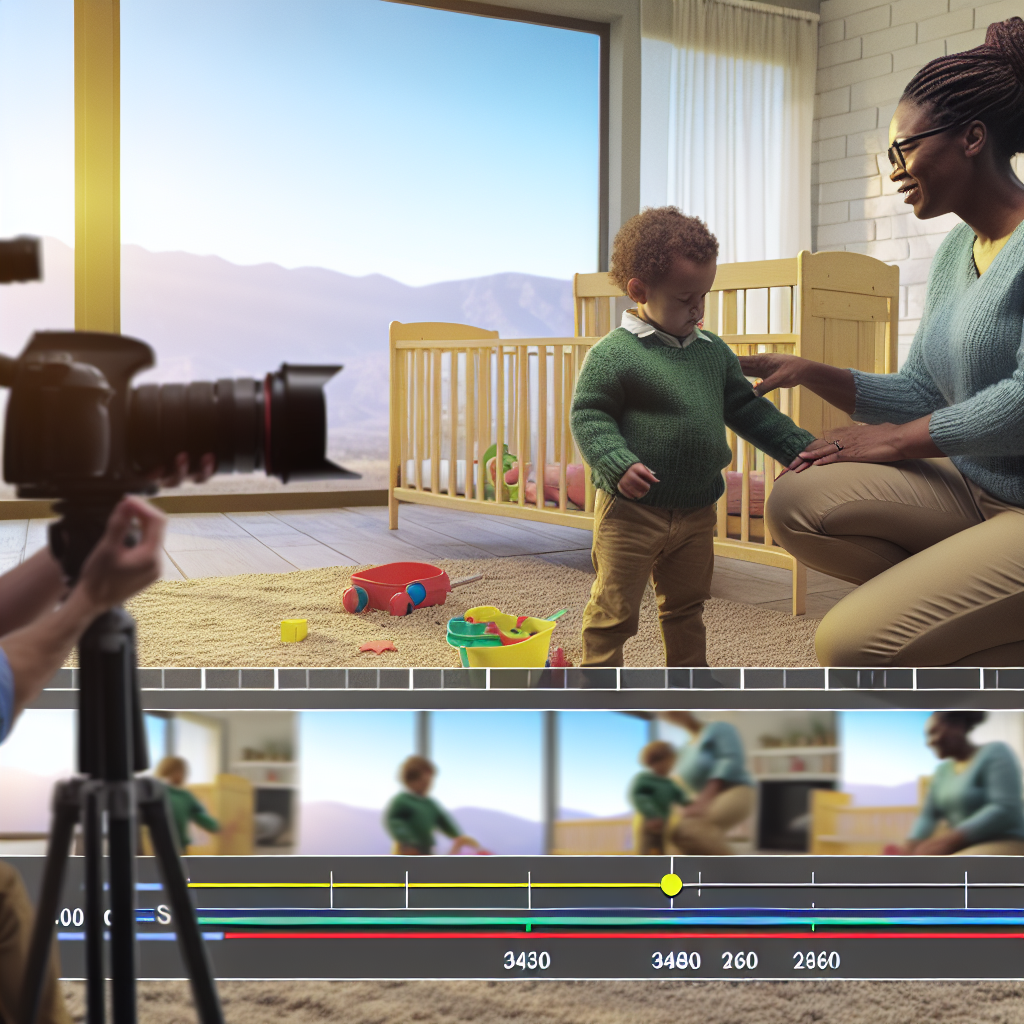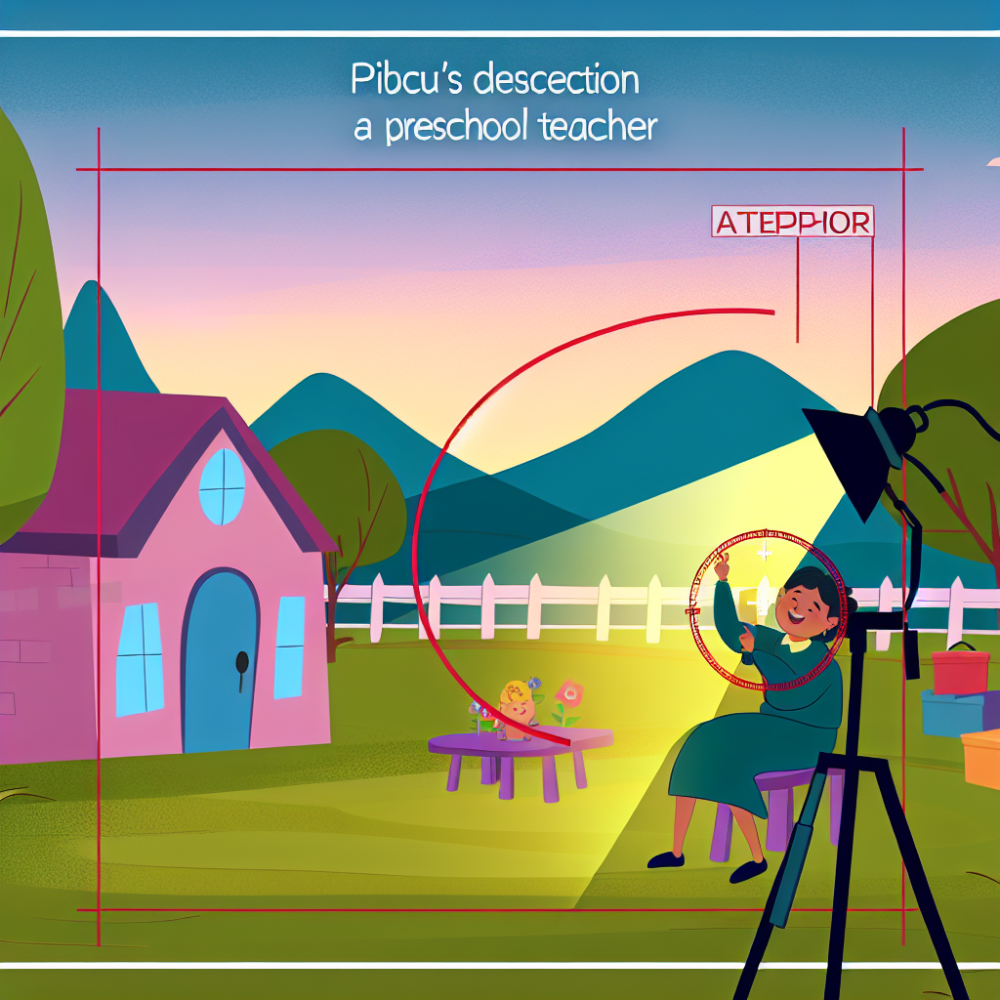Responsibilities of a Preschool Teacher
Preschool teachers play a crucial role in the development and education of young children. They are responsible for creating a safe and nurturing environment where children can learn and grow. In this article, we will explore the various responsibilities of a preschool teacher and the skills required to excel in this role.
First and foremost, a preschool teacher is responsible for planning and implementing age-appropriate curriculum and activities. This involves creating lesson plans that cover a wide range of subjects, such as language development, math, science, and social skills. The teacher must ensure that the curriculum is engaging and stimulating, fostering a love for learning in the children.
In addition to teaching academic subjects, preschool teachers also focus on developing the social and emotional skills of their students. They create opportunities for children to interact with their peers, encouraging them to share, take turns, and resolve conflicts. Preschool teachers also help children develop self-help skills, such as dressing themselves, using the bathroom independently, and practicing good hygiene.
Another important responsibility of a preschool teacher is to assess the progress of each child and provide feedback to parents. They observe and document the children’s behavior, skills, and milestones, and communicate this information to parents through progress reports and parent-teacher conferences. This feedback is crucial in helping parents understand their child’s development and providing guidance for further growth.
Preschool teachers also play a vital role in creating a positive and inclusive classroom environment. They promote diversity and teach children to respect and appreciate differences. They encourage open communication and create a safe space where children feel comfortable expressing themselves. Preschool teachers also establish routines and rules to maintain order and discipline in the classroom.
Furthermore, preschool teachers collaborate with other professionals, such as speech therapists, occupational therapists, and psychologists, to support children with special needs. They work closely with these professionals to develop individualized education plans and implement strategies to meet the unique needs of each child. Preschool teachers also provide support and guidance to parents, helping them navigate the challenges of raising a child with special needs.
To excel in this role, preschool teachers must possess a variety of skills. They need to have excellent communication and interpersonal skills to effectively interact with children, parents, and colleagues. Patience and empathy are also essential qualities, as preschool teachers often deal with challenging behaviors and emotions. Additionally, creativity and adaptability are crucial in designing engaging and age-appropriate activities.
In conclusion, the responsibilities of a preschool teacher are diverse and demanding. They are responsible for planning and implementing curriculum, fostering social and emotional development, assessing children’s progress, creating an inclusive classroom environment, and supporting children with special needs. To succeed in this role, preschool teachers must possess a range of skills, including effective communication, patience, empathy, creativity, and adaptability. By fulfilling these responsibilities and utilizing their skills, preschool teachers make a significant impact on the lives of young children, setting them on a path of lifelong learning and success.
Essential Skills for Preschool Teachers
Preschool teachers play a crucial role in the development and education of young children. They are responsible for creating a safe and nurturing environment where children can learn and grow. To be successful in this role, preschool teachers must possess a variety of essential skills.
First and foremost, preschool teachers must have excellent communication skills. They need to be able to effectively communicate with both children and their parents. Clear and concise communication is essential in conveying instructions, explaining concepts, and addressing any concerns or issues that may arise. Preschool teachers must also be skilled listeners, as they need to understand and respond to the needs and emotions of their young students.
Another essential skill for preschool teachers is patience. Working with young children can be challenging at times, as they are still learning how to regulate their emotions and behaviors. Preschool teachers must be patient and understanding, providing guidance and support as children navigate through their early years. Patience is also important when dealing with parents, as they may have questions or concerns that require careful attention and consideration.
Creativity is another skill that preschool teachers must possess. They need to be able to come up with engaging and age-appropriate activities that promote learning and development. Creativity allows preschool teachers to think outside the box and find innovative ways to teach important concepts. Whether it’s through art, music, or imaginative play, preschool teachers must be able to create a stimulating and enriching environment for their students.
Flexibility is also a crucial skill for preschool teachers. Every day in a preschool classroom is different, and teachers must be able to adapt to changing circumstances and unexpected situations. Flexibility allows preschool teachers to adjust their lesson plans, activities, and strategies to meet the individual needs of their students. It also enables them to handle any disruptions or challenges that may arise throughout the day.
Organizational skills are essential for preschool teachers to effectively manage their classrooms. They need to be able to plan and prepare lessons, keep track of materials and resources, and maintain a structured and organized learning environment. Organization helps preschool teachers stay on top of their responsibilities and ensures that everything runs smoothly.
Lastly, preschool teachers must have a genuine love and passion for working with young children. This is not just a job; it is a calling. Preschool teachers must genuinely care about the well-being and development of their students. They must be dedicated to creating a positive and nurturing environment where children can thrive. A love for children and a passion for teaching are what truly sets apart exceptional preschool teachers.
In conclusion, preschool teachers require a range of essential skills to be successful in their role. Excellent communication, patience, creativity, flexibility, organizational skills, and a genuine love for working with young children are all crucial attributes. These skills enable preschool teachers to create a safe and nurturing environment where children can learn and grow. By possessing these essential skills, preschool teachers can make a lasting impact on the lives of their students and set them on a path towards a successful future.
Importance of Lesson Planning in Preschool Teaching

Preschool teaching is a crucial stage in a child’s development, as it sets the foundation for their future academic success. As a preschool teacher, one of the most important aspects of your job is lesson planning. Lesson planning plays a vital role in ensuring that children receive a well-rounded education and have the opportunity to develop essential skills.
First and foremost, lesson planning allows preschool teachers to create a structured and organized learning environment. By carefully planning each lesson, teachers can ensure that they cover all the necessary topics and concepts. This helps to prevent any gaps in the curriculum and ensures that children receive a comprehensive education. Additionally, having a well-structured lesson plan allows teachers to effectively manage their time and allocate appropriate amounts of time to each activity.
Furthermore, lesson planning enables preschool teachers to cater to the individual needs and abilities of each child. Every child is unique and learns at their own pace. By planning lessons that are tailored to the specific needs of the children in their class, teachers can provide a more personalized learning experience. This helps to ensure that each child is challenged and engaged, which ultimately leads to better learning outcomes.
In addition to individualized instruction, lesson planning also allows teachers to incorporate a variety of teaching strategies and methods. Preschoolers have different learning styles, and what works for one child may not work for another. By carefully planning their lessons, teachers can incorporate a range of activities, such as hands-on experiments, group discussions, and visual aids. This ensures that all children have the opportunity to learn and understand the material in a way that suits their learning style.
Another important aspect of lesson planning is the ability to assess and monitor children’s progress. By setting clear learning objectives and goals for each lesson, teachers can easily track the progress of their students. This allows them to identify any areas where children may be struggling and provide additional support or intervention. Regular assessment also helps teachers to evaluate the effectiveness of their teaching methods and make any necessary adjustments to ensure optimal learning outcomes.
Moreover, lesson planning promotes collaboration and communication among teachers, parents, and other stakeholders. By sharing their lesson plans with parents, teachers can keep them informed about what their child is learning and how they can support their learning at home. It also allows for collaboration with other teachers, as they can share ideas, resources, and best practices. This collaborative approach ensures that children receive a consistent and cohesive education, both at school and at home.
In conclusion, lesson planning is of utmost importance in preschool teaching. It provides structure, individualization, and a variety of teaching strategies to cater to the diverse needs of preschoolers. It also allows for ongoing assessment and monitoring of children’s progress, as well as promoting collaboration and communication among teachers, parents, and other stakeholders. By investing time and effort into lesson planning, preschool teachers can create a positive and enriching learning environment that sets children up for future success.
Creating a Positive Learning Environment in Preschool
Creating a Positive Learning Environment in Preschool
Preschool is a crucial time in a child’s development, and the role of a preschool teacher is vital in shaping their early educational experiences. One of the key responsibilities of a preschool teacher is to create a positive learning environment that fosters growth, curiosity, and a love for learning. In this article, we will explore the various ways in which preschool teachers can create such an environment.
First and foremost, a positive learning environment begins with the physical space. Preschool classrooms should be bright, inviting, and organized. The use of colorful decorations, age-appropriate learning materials, and comfortable seating areas can help create a warm and welcoming atmosphere. It is important to ensure that the classroom is clean and well-maintained, with plenty of space for children to move around and engage in various activities.
In addition to the physical environment, the emotional climate of the classroom is equally important. Preschool teachers should strive to create a safe and nurturing space where children feel valued, respected, and supported. This can be achieved by establishing clear rules and expectations, and consistently enforcing them in a fair and gentle manner. Teachers should also encourage positive social interactions among the children, promoting kindness, empathy, and cooperation.
Another crucial aspect of creating a positive learning environment is the use of engaging and developmentally appropriate teaching strategies. Preschool teachers should employ a variety of instructional methods that cater to the diverse learning styles and abilities of their students. This may include hands-on activities, group projects, storytelling, music, and movement. By incorporating different modalities of learning, teachers can ensure that all children are actively engaged and motivated to learn.
Furthermore, preschool teachers should provide a rich and stimulating curriculum that is aligned with the developmental needs and interests of young children. This may involve planning and implementing age-appropriate activities that promote cognitive, physical, social, and emotional development. Teachers should also encourage exploration and discovery, allowing children to ask questions, make connections, and think critically. By providing a curriculum that is both challenging and enjoyable, preschool teachers can instill a lifelong love for learning in their students.
In order to create a positive learning environment, preschool teachers must also establish strong partnerships with parents and families. Regular communication and collaboration with parents can help create a sense of shared responsibility for the child’s education. Teachers should provide parents with regular updates on their child’s progress, as well as suggestions for activities that can be done at home to reinforce learning. By involving parents in the educational process, teachers can create a seamless transition between home and school, ensuring that children receive consistent support and encouragement.
In conclusion, creating a positive learning environment in preschool is essential for the holistic development of young children. By focusing on the physical space, emotional climate, teaching strategies, curriculum, and partnerships with parents, preschool teachers can create an environment that nurtures curiosity, fosters growth, and instills a love for learning. By providing children with a strong foundation during their early years, preschool teachers play a crucial role in shaping their future success.
Effective Communication with Parents in Preschool Teaching
Effective Communication with Parents in Preschool Teaching
Preschool teaching is a rewarding profession that requires a unique set of skills and qualities. One of the most important aspects of being a preschool teacher is the ability to effectively communicate with parents. Building strong relationships with parents is crucial for the success of both the child and the teacher. In this article, we will explore the importance of effective communication with parents in preschool teaching and provide some tips for achieving it.
First and foremost, effective communication with parents helps to establish trust and mutual understanding. Parents entrust their precious little ones to the care of preschool teachers, and they want to feel confident that their child is in good hands. By maintaining open lines of communication, teachers can address any concerns or questions that parents may have, and provide regular updates on their child’s progress. This helps to build trust and reassures parents that their child is receiving the best possible care and education.
Furthermore, effective communication with parents allows teachers to gain valuable insights into each child’s unique needs and abilities. Parents are the primary caregivers and know their child better than anyone else. By actively listening to parents and engaging in meaningful conversations, teachers can gain a deeper understanding of each child’s strengths, weaknesses, and interests. This knowledge can then be used to tailor the curriculum and teaching strategies to meet the individual needs of each child, ensuring that they receive a personalized and enriching learning experience.
In addition, effective communication with parents fosters a sense of partnership and collaboration. Parents are an integral part of a child’s educational journey, and their involvement can greatly enhance the learning experience. By regularly communicating with parents, teachers can keep them informed about classroom activities, upcoming events, and ways they can support their child’s learning at home. This collaboration between teachers and parents creates a strong support system for the child, where everyone is working together towards a common goal – the child’s success and well-being.
To achieve effective communication with parents, there are several strategies that preschool teachers can employ. First and foremost, it is important to establish clear and open lines of communication from the very beginning. Teachers should provide parents with multiple channels for communication, such as email, phone, or in-person meetings, and ensure that they are readily available to address any concerns or questions.
Active listening is another crucial aspect of effective communication. When engaging in conversations with parents, teachers should give their full attention, show empathy, and ask clarifying questions to ensure that they understand the parent’s perspective. This not only helps to build trust but also demonstrates respect for the parent’s input and concerns.
Regular and consistent communication is also key. Teachers should provide parents with regular updates on their child’s progress, whether through written reports, parent-teacher conferences, or informal conversations. This helps to keep parents informed and involved in their child’s learning journey.
In conclusion, effective communication with parents is a vital component of preschool teaching. It helps to establish trust, gain valuable insights, foster collaboration, and create a supportive learning environment for the child. By employing strategies such as clear communication channels, active listening, and regular updates, preschool teachers can build strong relationships with parents and ensure the best possible outcomes for their students.





